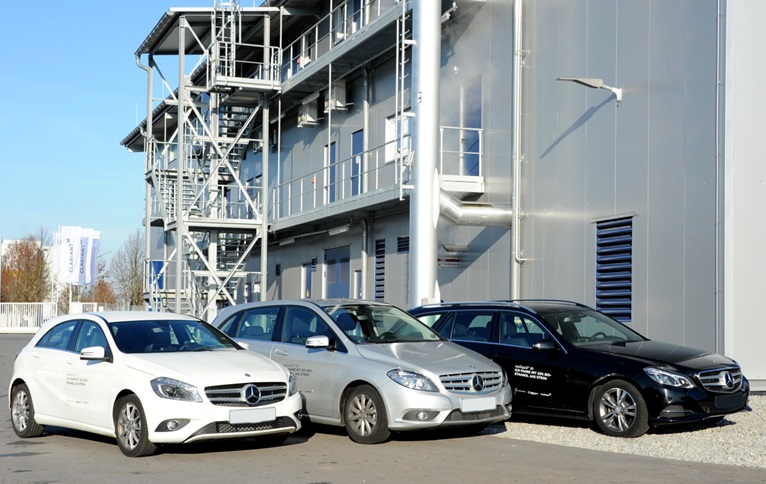sunliquid 20 shows what it can do in the fleet test with MercedesBenz series vehicles

- sunliquid® 20: a sustainable, advanced biofuel with ideal combustion properties and efficiency
- Practice test confirms: no negative impact on range or driving comfort
- Plus for the environment: improves particle count emissions and guarantees significant reductions in CO2 emissions
In addition to first-class performance, the 50% improvement in particle count emissions of sunliquid® 20 in contrast to the EU reference fuel EU5 is notable. Furthermore, the cellulosic ethanol in sunliquid® 20 demonstrates especially high greenhouse gas emission savings of up to 95% across the entire value chain (well-to-wheel perspective) without competing with food production or agricultural acreage. Consumers could fill now their tanks with an eco-friendly fuel, one which can be introduced without making any adjustments to the gas station infrastructure in Europe and without compromising fuel range and driving comfort. "Cellulosic ethanol from agricultural residues can play a key role in creating more sustainable mobility in Germany, Europe and worldwide. Here we have the latest generation of truly advanced biofuel, the high performance of which was confirmed in the fleet test on series vehicles," says Professor Andre Koltermann, Head of Group Biotechnology at Clariant. "Second generation biofuels coming from agricultural residues are now technologically ready and available for production and application. A change in energies used for transport must also be successful now; for this to happen, we urgently need stable framework conditions such as the mandatory blending rate for advanced biofuels being discussed at EU level."
"Our main task is to shape solutions to create sustainable mobility for the future. Gasoline with 20% ethanol can already be used easily in our latest Mercedes-Benz BlueDIRECT gasoline engines. The prior experiences from the pilot project are optimistic, as are greenhouse gas emission savings regarding efficiency. Hence cellulosic ethanol can make a significant contribution to climate protection, so making it for us a building block of sustainable mobility," explains Peter Lueckert, Director for Engine, Powertrain, and Fuel Injection at Daimler AG.
"Our joint project is evidence that Germany is a trendsetter in the research and development of sustainable special fuels. The use of outstanding biofuels is extremely important for sustainable, efficient and affordable mobility in the future. As a specialties company and research partner of the industry, we are even more delighted to be able to produce a fuel that can be used so broadly," emphasizes Dr. Uwe Nickel, CEO of H∙C∙S Group (Halterman Carless Solutions).
sunliquid® 20 is an E20 fuel with 20% cellulosic ethanol. Wheat straw or other non-edible agricultural residues are converted into cellulosic ethanol using Clariant's sunliquid® process. The production of cellulosic ethanol is virtually CO2-neutral, saving almost 100 % of CO2 emissions compared to gasoline. Haltermann then mixes the cellulosic ethanol with conventional fuel components to form the new fuel sunliquid® 20. The 20% cellulosic ethanol gives the fuel a high octane number (RON) of over 100, guaranteeing optimal efficiency.
In January 2014, Clariant, Haltermann, and Mercedes-Benz began the fleet test with Mercedes-Benz series vehicles. The test fleet vehicles can be refilled with the new fuel at a specially equipped gas station on the Mercedes-Benz site in Stuttgart-Untertürkheim for one year. The cellulosic ethanol comes from Clariant's sunliquid® demonstration plant in Straubing, where approximately 4,500 tons of agricultural residues such as wheat straw or corn stover are converted into cellulosic ethanol each year. At the Haltermann plant in Hamburg, the bioethanol is mixed with selected components to create the innovative fuel, the specifications of which reflect potential European E20 fuel quality.

